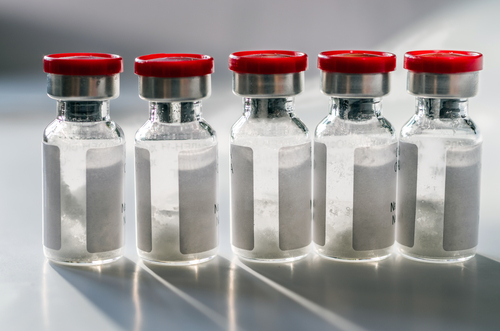Gene Therapy MYO-101 Receives FDA’s Orphan Drug Status for LGMD2E Treatment
Written by |

The U.S. Food and Drug Administration (FDA) granted orphan drug status to MYO-101, a gene therapy being developed by Myonexus Therapeutics for the treatment of limb girdle muscular dystrophy type 2E (LGMD2E) .
The FDA’s orphan drug designation is recognition of the potential of MYO-101 for the treatment of this rare disease, which has no approved therapies. The designation is expected to provide additional regulatory support, financial benefits, and help expedite the clinical development and review of MYO-101 for its final approval.
“Orphan Drug designation is a milestone in the development of MYO-101. It moves Myonexus a significant step closer to bringing potentially transformative quality of life improvements to children living with [LGMD) type 2E],” Michael Triplett, president and CEO of Myonexus Therapeutics, said in a press release.
LGMD is a group of genetic diseases characterized by progressive muscle-debilitating weakness and wasting. It initially affects the muscles around the hips and shoulders, with later impairment of muscles in the arms and legs. LGMD2E is caused by mutations in the SGCB gene, which encodes the protein beta-sarcoglycan that is involved in maintaining the structure of muscle tissue.
MYO-101 was designed initially by a research team led by Louise Rodino-Klapac, PhD, and with the clinical guidance of Jerry Mendell, MD, at Nationwide Children’s Hospital Center for Gene Therapy. This new gene therapy aims to permanently restore the levels of beta-sarcoglycan protein in the affected tissues, and reverse the effects of LGMD2E.
Mouse studies on MYO-101 have shown that a single intravenous injection of the gene therapy increased the levels of beta-sarcoglycan protein in all muscles. This was found to be accompanied by great improvements in muscle fiber size distribution and mean fiber diameter, and also decreased muscle scarring and fat infiltration. An 85.5 percent reduction of serum creatine kinase — a biomarker of muscle tissue deterioration — also was reported six months after the treatment.
Animals receiving MYO-101 also showed several significant improvements in function, including increased diaphragm strength and resistance (required for normal breathing), reduced spine deformations, improved walking ability, and normalized cardiac output.
These preclinical results have supported the approval of an investigational new drug application that must be granted before beginning clinical studies in patients with confirmed LGMD2E.
“The MYO-101 preclinical efficacy data are compelling, and we look forward to initiating a systemic Phase 1/2a trial of MYO-101 later this year,” Triplett said.




